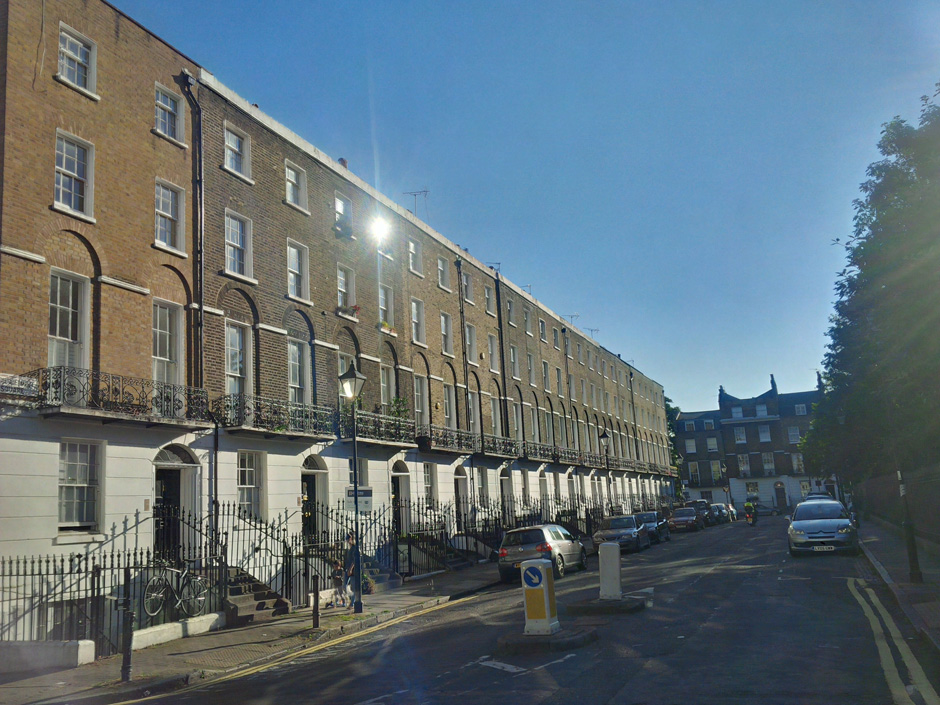
7 Sully Terrace, Claremont Square
Pentonville (Finsbury), London
Susanna came to think of Thomas Pringle as an adopted father and he would soon come to fulfill a fatherly duty by giving her away at her wedding. An editor and poet, he became a mentor to the young writer who was frequently a guest in his home where in the summer of 1830, she met John Moodie – an acquaintance of Pringle’s from South Africa and a fellow Scot. John was a thirty-six year old retired Army officer, and a published author with a farm in South Africa and a good aristocratic family in Scotland. Susanna was a twenty-six year old aspiring writer.
Letter from John Moodie to Susanna Strickland:
92 Upper Seymour Street
Euston Square
Summer 1830
My Dear Friend,
Will you allow me to see you alone? If you are engaged now, let me know when – I cannot meet you in the presence of a third person.
Yours affectionately,
J.W.D.M.
It was in Pringle’s home that Susanna also met and befriended the Pringle’s servant Mary Prince. A West Indian slave who had been brought to England by her owners, Mary ran off from them to escape abuse and hoped to gain her freedom through the help of the Anti-Slavery Society. Susanna acted as (uncredited) amanuensis or scribe who transcribed the moving life story that Mary herself recounted. The resulting pamphlet, ‘The History of Mary Prince – A West Indian Slave’ played an important role in influencing public opinion which helped lead the way to legislation banning slavery throughout the British Empire in 1834. In a letter to friends back home in Suffolk, Susanna mentioned the project modestly in January 1832.
“I have been writing Mr. Pringle’s black Mary’s life from her own dictation and for her benefit adhering to her own simple story and language without deviating to the paths of flourish or romance. It is a pathetic little history and is now printing in the forms of a pamphlet to be laid befoe the Houses of Parliament. Of course my name does not appear. Mr. Pringle has added a very interesting appendix and I hope the work will do much good.” (excerpt of a letter from Susanna Strickland to James and Emma Bird, January 1832)